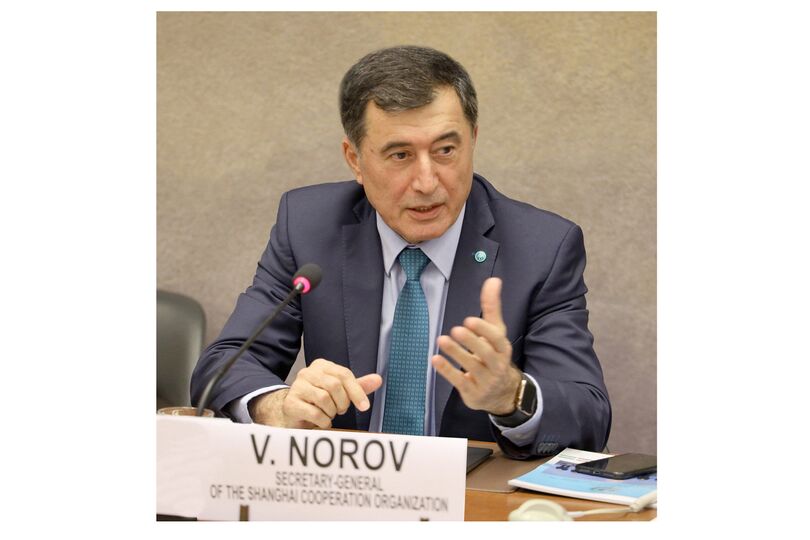Following the first organisational meeting of the SCO University Coordinating Council on 30 June 2020, SCO Secretary-General Vladimir Norov was interviewed by Daily Islamabad Post, DNA News Agency, Centreline magazine and the Chinese newspaper People's Daily on 9 July 2020. The interview was on cooperation between the SCO member states in education and on the University of Shanghai Cooperation Organisation in particular.
Mr Norov spoke extensively about the cooperation between the SCO member states in education. He described in detail University of Shanghai Cooperation Organisation as a network of universities in the SCO member countries that have united in the joint training of highly qualified personnel based on agreed to education programmes on the specialties that are of priority interest for the socio-economic development of the participants.
Mr Norov noted that the University unites the most prestigious and representative higher educational institutions that have a solid education base and the necessary competencies.
"The idea of creating SCO University was put forward by President of Russia Vladimir Putin. He proposed it at the meeting of the SCO Heads of State Council in Bishkek on 16 August 2007. There was a serious ground for taking this step because during the past years the SCO member states had formed a solid legal base for cooperation in education in general and in the University of Shanghai Cooperation Organisation in particular," Mr Norov said.
He emphasised that SCO University had become a major venue for developing cooperation in professional education in the SCO space, deepening cooperation between universities and practicing methods of implementing joint education projects in a multilateral format.
At the same time, Mr Norov noted that in 2020 all of us are facing a new reality. The education systems of the world, including the SCO member states, are taking measures to organise the academic process under conditions brought on by the coronavirus pandemic.
Mr Norov said that schools are fully or partially closed in the majority of SCO member countries and many students have been transferred to distance learning. Indicatively, the crisis caused by the COVID-19 pandemic arrived when most education systems have proved unable to use the full potential of digital education, as the latest PISA round showed.
"However, faced with the obvious challenges and problems caused by the coronavirus, new education formats offer a broad range of opportunities for adjusting and upgrading the education systems for which this critical situation creates relevant conditions. Judging by the work in this area in all countries, online education has every chance to become more comprehensive. At the same time, we must find an answer to how this will affect the university system in the future," Mr Norov said.
The full text of the interview is published by:
